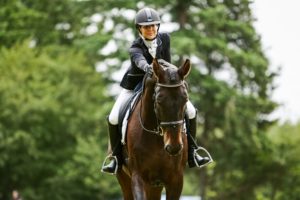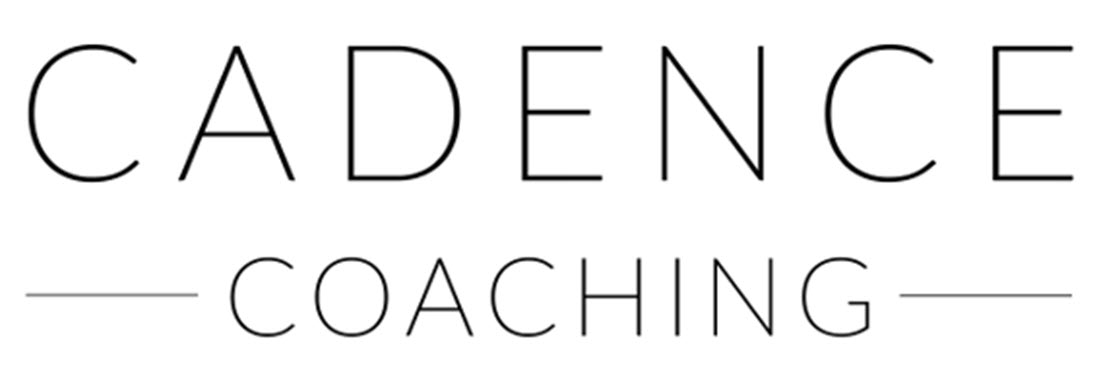
No matter what kind of rider you are, what your level is, which discipline you love or what your goals are- riding can bring you unbelievable joy or debilitating stress. Your passion can leave you exhilarated or it can leave you in despair. Our partnerships with our horses lift us up, push us forward and they can also drag us mercilessly through the mud.
Self-determination theory says that, as human beings, we are drawn to continually grow. We are driven to expand and achieve. As equestrians, there is almost no achievement so great as developing a partnership with a horse that allows us to go out and achieve together- whatever that looks like for each of us. This is likely why you’re here- to learn, to improve your relationship with your horse and to expand your ability to evolve as a rider.
So, If we’re all driven to grow and evolve, why are we not all exactly where we want to be? Why are we not all Olympians or galloping hands-free on the beach? I have only recently begun to truly understand the unconscious human dilemma that is at the center of this question. As hard wired as we are for growth, we are equally hard wired for survival. We all have a voice inside our heads that wants us to learn and achieve. And we have an equally powerful voice that craves safety, status quo and security. These two voices battle it out every day. Fear, procrastination, excuses, self-doubt, and perfectionism all conspire to thwart our aspirations.
One of my trainer clients asked me once, “Why do I not just DO the things I know I need to do in order to be happy? This is not rocket science. What is my problem??” This is a question that we tend to think represents our own private battle. But this is a universal part of the human experience. Our DNA is laced with a deep- seated urge to maintain the status quo. I do not believe in the fear of success. We are not afraid of success. We are, quite simply, afraid of CHANGE.
As an equestrian performance coach, there are questions I hear over and over: “How can I ride my best under pressure? How can I keep my emotions from getting in my way? How can I get the most out of my lessons? How can I overcome my fear? How can I enjoy showing again? How can I get my horse to perform as well in the ring as he does at home?” “How can I get back the confidence I had when I was younger?”
One thing I learn again and again, is that, in our infinite uniqueness, we are all the same. The Grand Prix dressage riders and five-star event riders I work with have the same insecurities that the rest of us have. We all struggle with self-doubt, comparing ourselves to others, nerves and fear. We all hit plateaus, steep learning curves, have post traumatic fear responses, mental blocks and frustration.
These challenges are at the heart of the questions that I pursue answers for.
Getting to the far side of fear is where all the good stuff happens.
So get ready- this is the ride we’re going to take together!
In this first session of The Performance Project, we’re going to dive into how you can use stressful situations to your advantage. You can make your nerves your super power. It’s my own journey from fear to power that first taught me what I’m going to share with you now.
Turning fear to power means that you go from feeling at the mercy of your nerves, anxiety or fear to feeling empowered to shift into an emotional state in which you can perform your best. This starts with a basic understanding of how mind, body and emotions can harmonize for optimal performance.
Stress is actually just the human response to change. We tend to think stress is a negative thing. We try to avoid it, manage it and medicate it. The problem with this is that the very nature of life is change! This means we’re trying to avoid, manage and medicate life. This is crazy! What if, instead of managing or avoiding stress, we accept it as a way of life and are strategic about how we navigate it?
I am going to describe now, what some sports psychologists call the Ideal Performance State. We’re going to call it, “Being in The Zone”.
When you’re in the zone, you’re focused and totally in the moment. You’re physically, mentally and emotionally exactly where you need to be. You are in deep concentration and have emotional buoyancy. You feel a sense of mastery and a lack of self-consciousness. You are, what I call, athletically available.
You might think only elite athletes experience this; that you have to train for years or have a ton of talent. Not so. You can learn to get into “the zone”. You can create the conditions needed to get into that sweet spot when you’re under pressure. The only caveat is that, the harder you try, the more elusive that sweet spot can become.
So, if it’s not about trying harder, what’s it about? I believe it’s about understanding and being able to intercept the fear cycle.
Here’s my description of the fear cycle:
- The rider has a thought. Usually an automatic negative thought. Automatic negative thoughts are what we affectionately call ANTs. These can be mundane negative thoughts like, what if the people watching think I’m a bad rider, what if my horse spooks, or what if the judge doesn’t like my horse. They can be deeper seated thoughts like I’m not good enough, I don’t belong here, or I’ll never be able to do this right. They can also be post traumatic thoughts that revisit past bad experiences or imaginings.
- These thoughts inspire an emotion- usually nerves or anxiety.
- The emotion triggers the release of stress hormones- basically, a chemical combination of cortisol, adrenaline and epinephrine.
- This creates a fight or flight response in the rider’s body- muscles tense up, rider grips the reins, breath gets shallow, brain freezes up- all the physical responses we associate with nerves or fear. The body is basically ready to flee.
- The horse feels the rider’s tension and becomes physically tense. This creates an emotion in the horse, usually fear.
- The horse then also has this stress soup coursing through their system as well. Now you have a fight or flight animal sitting on another fight or flight animal!
- The horse starts to have thoughts associated with whatever the situation is that triggered this cycle and then the cycle gets repeated.
The fear cycle has evolved as a survival mechanism. When faced with a threat, your heart beats faster, breathing gets rapid, glucose is released into your bloodstream and your body becomes hyper prepped for action.
This is a natural response to stress. But it becomes a habitual one. And that’s key- it’s a habit. I have people say to me all the time. “I’m just a nervous person.” Or “I have anxiety.” Or “I’m not good under pressure.” It’s actually not very useful to view these as inherent personality traits. The fear cycle response is a habit. Humans are hard wired to survive in a dangerous world and we all develop this habitual response to stress.
So, how do you go from fear to power?
First, you take charge of your thoughts. You catch & correct those ANTs.
You intentionally have thoughts that inspire constructive emotions like excitement, love and joy.
These thoughts trigger the production of endorphins and mood enhancing hormones. This chemical combination creates a sense of energetic calm. It slows time down and allows you to be present in the moment. You are able to focus, and take instruction well. Your horse feels secure in your presence.
This is an intentional cycle. It’s one we need to consciously create. We all possess the ability to get into the zone! You may struggle to greater or lesser degrees with self-doubt, perfectionism, anxiety or outright fear. The fear cycle is initiated by all of these but you CAN interrupt it and turn fear to power.
Whether you experience full on fear, occasional insecurity, show nerves or are challenged with improving your performance at the highest levels, getting stuck in the fear cycle can cause you to miss out on having fun, being present and progressing in your riding.
So where is our opportunity to go from fear to power? Lucky for us, there are three places we can intercept the fear cycle response- mind, emotions and body. Throughout The Performance Project, I give you tools you can use to intercept the fear cycle at all three of these levels.
In the horse world- we’re taught to buck up, get back on the horse, and push through fear. We think we should be able to get rid of it through repetition and grit. But, of course, what we resist persists. In TPP, I give you tools to shift out of the fear cycle into “the zone” and invite you to be strategic rather than trying to “push through”. Let’s do this!
Sign up for The Performance Project here: https://jenverharen.mykajabi.com/tpp
I can’t wait to see you on the inside!
(Thank you to Cadence Client, Laura Clark for this special-moment photo.)
